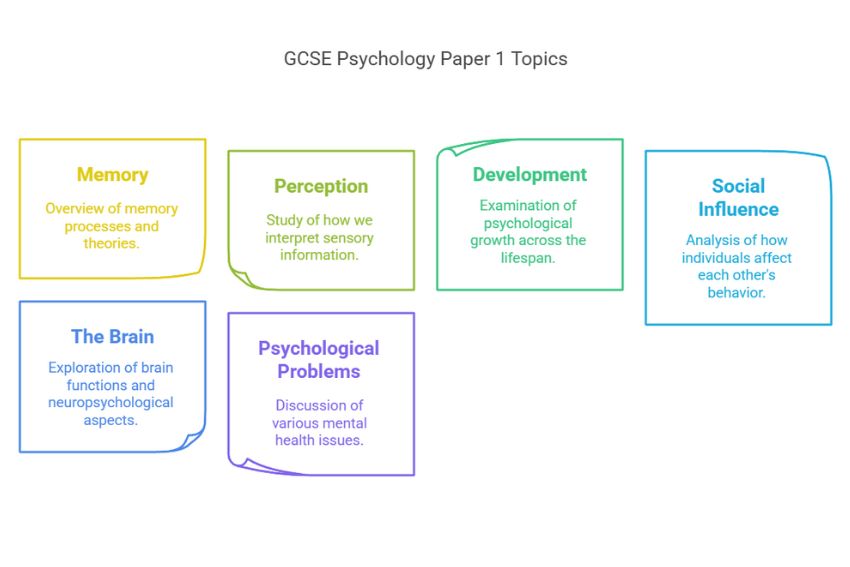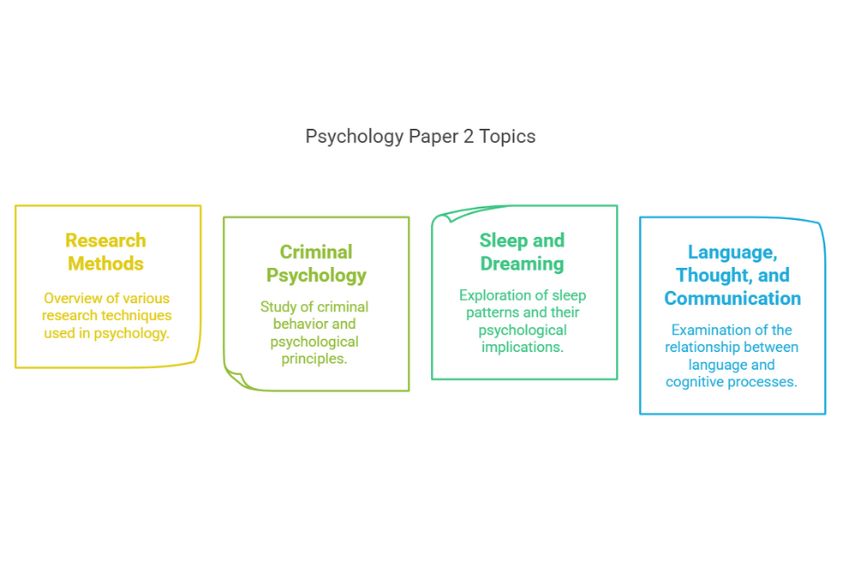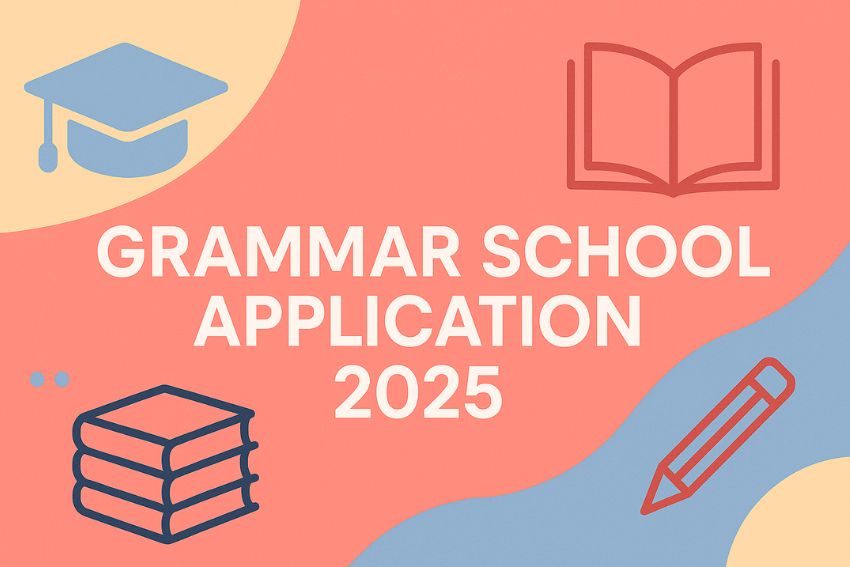GCSE Psychology is a fascinating subject that helps you understand how people think, feel, and behave. Whether you enjoy exploring human behaviour or want to pursue psychology in the future, this subject offers valuable insights. But how do you secure a Grade 9 in GCSE Psychology?
Scoring top marks requires a clear understanding of the subject, strong psychology revision strategies, and effective exam techniques. In this guide, you’ll learn everything you need to know-from the GCSE Psychology specification to the best ways to prepare for your exams. Whether you’re studying with AQA, Edexcel, or OCR, this blog will help you stay ahead and achieve the highest grade possible.
Now, let’s start with the basics: What is GCSE Psychology, and why is a Grade 9 worth aiming for?

GCSE Psychology Exam Boards: AQA, Edexcel & OCR
So, before diving into revision strategies, it’s important to understand which exam board you’re studying with. GCSE Psychology specification is offered by three main boards: AQA, Edexcel, and OCR. While the core GCSE Psychology topics are similar, each board has a slightly different specification, exam structure, and question style.
AQA GCSE Psychology
To begin with, AQA is the most popular exam board for GCSE Psychology. The course focuses on memory, perception, development, and research methods, alongside topics like social influence and brain neuropsychology. The exam consists of two papers, both containing multiple-choice, short-answer, and extended-response questions.
Edexcel Psychology GCSE
Edexcel’s specification covers similar topics, but includes some unique areas such as criminal psychology and sleep & dreaming. The exam structure also consists of two papers, but the question style may vary slightly from AQA.
OCR Psychology GCSE
OCR’s course is designed to develop critical thinking and research skills. Also, this specification covers psychological problems, social influence, and memory, among other GCSE psychology topics. Like AQA and Edexcel, OCR also has two papers, each testing different aspects of psychology.
Key Differences Between Exam Boards
- AQA: Focuses on core psychology principles and research methods.
- Edexcel: Includes more applied psychology topics like criminal psychology.
- OCR: Emphasises evaluating real-life psychological studies.
Therefore, understanding your exam board’s GCSE Psychology specification will help you tailor your revision effectively and choose the right GCSE Psychology topics to focus on.
Key Topics in GCSE Psychology
Is psychology hard? Many students ask this, but the challenge depends on how well you understand key concepts and apply them in exams. So, to score a Grade 9 in Psychology, you need a solid grasp of the GCSE Psychology topics covered in Paper 1 and Paper 2. Each exam board (AQA, Edexcel, and OCR) structures its syllabus slightly differently, but the core themes remain the same.
Psychology Paper 1
Paper 1 focuses on core psychological concepts that help explain human behaviour. You will study:

Psychology Paper 2 Topics
Paper 2 applies psychological knowledge to real-world scenarios. You’ll focus on:

Each exam board includes slightly different topics, so check your GCSE Psychology specification to see what applies to you.
Effective Revision Strategies for GCSE Psychology
How to Revise Psychology? Many students struggle with how to revise psychology effectively.In reality, GCSE Psychology revision can feel overwhelming, but with the right approach, you can make it manageable and even enjoyable. The key is to use active learning techniques, stay consistent, and practise with past papers. Here’s how to make your Psychology GCSE revision effective and efficient.
1. Use Active Recall and Spaced Repetition
Simply reading notes isn’t enough. Instead, test yourself using flashcards or summary questions. Spaced repetition-reviewing topics at intervals-helps you memorise and retain core GCSE psychology topics for the long term.
2. Break Down Each Topic
Tackle one Psychology GCSE topic at a time. Create concise mind maps for concepts like memory, social influence, and perception. This helps with both understanding and recall.
3. Practise with GCSE Psychology Past Papers
Using GCSE past papers is one of the best ways to prepare for psychology exam. They help you:
- Familiarise yourself with exam-style questions.
- Identify recurring psychology paper 1 topics GCSE
- Improve time management by practising under timed conditions.
4. Learn How to Answer Different Question Types
Some questions require short factual answers, while others need longer explanations or evaluation of theories. Look at mark schemes to see what examiners expect.
5. Mix Up Your Revision Methods
Avoid sticking to just one method. Use revision guides, videos, and online quizzes to keep things engaging.
Is GCSE Psychology Hard? Understanding Grade Boundaries
Many students wonder, “Is GCSE Psychology hard?” The answer depends on how well you understand the topics and structure your exam answers. The subject involves memorising key studies, applying theories, and evaluating research methods, which can be challenging if you don’t revise effectively. However, with the right approach, it becomes much easier to manage.
In addition, a key factor in achieving a Grade 9 is understanding GCSE Psychology grade boundaries. These boundaries change each year based on overall student performance, meaning the number of marks needed for each grade can vary. Typically, to secure a Grade 9, you need to score 80% or higher, but this can differ depending on your exam board. Checking the official grade boundaries for AQA, Edexcel, or OCR will give you a clearer idea of how many marks you should aim for.
Exam Tips for Achieving a Grade 9 in GCSE Psychology
Scoring a Grade 9 in Psychology GCSE requires more than just memorising facts. You need to understand key concepts, apply psychological theories, and write structured answers that meet examiner expectations. Here’s how to tackle high-mark questions and avoid common mistakes.
1. Understand What Examiners Want
For longer exam questions, especially 9-mark and 12-mark questions, structure your answers using PEEL (Point, Evidence, Explain, Link). State your point clearly, support it with evidence from psychological studies, explain its relevance, and link it back to the question.
2. Use GCSE Psychology Past Papers
Furthermore, practising with GCSE Psychology past papers is crucial. They help you recognise question patterns and recurring topics, improve time management under timed conditions, and identify common mistakes so you can correct them before the real exam.
AQA GCSE Psychology Past Papers
Edexcel GCSE Psychology Past Papers
OCR GCSE Psychology Past Papers
3. Answer High-Mark Questions Effectively
To answer high-mark questions effectively, start by planning before you write. Jot down key points to ensure you cover all crucial details. Use psychological terms correctly, as examiners reward precise terminology. Instead of just describing studies, evaluate theories by assessing their strengths and weaknesses.
4. Avoid Common Mistakes
Avoid common mistakes by always linking your answers to the question, ensuring your response stays relevant to the topic. Maintain a balance between detail and clarity, avoiding writing too much or too little within the given time. Don’t forget to include real-world applications by demonstrating how psychological theories relate to everyday situations.
Accordingly, by applying these exam strategies and regularly using past papers, you’ll build confidence and improve your chances of securing a Grade 9 in Psychology GCSE.
Conclusion
To sum up, achieving a Grade 9 in GCSE Psychology may seem challenging, but with the right revision strategies, exam techniques, and consistent practice, it’s absolutely possible. Understanding the GCSE Psychology specification for your exam board (AQA, Edexcel, or OCR) helps you focus on the right topics. Using GCSE Psychology past papers allows you to familiarise yourself with exam-style questions and perfect your answers.
Besides, if you ever find yourself struggling, consider seeking support from online GCSE Psychology tutors. A tutor can provide personalised guidance, help you master difficult topics, and improve your exam technique. One-to-one tutoring can make a huge difference in boosting confidence and improving your grades.
Success in Psychology isn’t just about memorising facts-it’s about understanding concepts, evaluating theories, and applying knowledge effectively. Hence, with the right approach, you can achieve top marks in GCSE Psychology and build a strong foundation for A-Level Psychology and future success.
FAQs:
What is Psychology GCSE?
GCSE Psychology is the study of how people think, feel, and behave. It covers topics like memory, perception, development, and mental health. You’ll learn about famous psychological studies, different research methods, and how psychologists apply their knowledge to real-world situations. The subject helps develop critical thinking, analytical, and research skills, making it useful for future studies in psychology, sociology, or even business.
How Many Papers Are There in GCSE Psychology?
GCSE Psychology is assessed through two exam papers:
- Paper 1 – Covers core psychological concepts like memory, perception, social influence, and brain neuropsychology.
- Paper 2 – Focuses on research methods and applied psychology topics, which may vary depending on your exam board (AQA, Edexcel, or OCR).
Both papers contain multiple-choice, short-answer, and extended-response questions. Check your exam board’s GCSE Psychology specification for exact details.
Is GCSE Psychology Hard?
The difficulty depends on how well you understand key concepts and apply theories in exams. Some students find the subject challenging because it requires memorisation of case studies and the ability to evaluate research critically. However, with the right revision techniques and consistent practice, GCSE Psychology can be manageable and even enjoyable.
How to Revise Psychology GCSE?
To revise effectively for Psychology GCSE, focus on active recall and past papers. Use flashcards to test yourself on key studies, theories, and research methods. Create mind maps to summarise important topics like memory, social influence, and neuropsychology. Practice with past papers to get familiar with exam questions and timing. Spaced repetition-reviewing topics at regular intervals-helps you retain information long-term.
How to Score a 9 in GCSE Psychology?
To achieve a Grade 9 in GCSE Psychology, you need a strong understanding of key topics, excellent exam technique, and regular practice with past papers. Learn how to structure answers using PEEL (Point, Evidence, Explain, Link), and always evaluate psychological studies with strengths and weaknesses.








